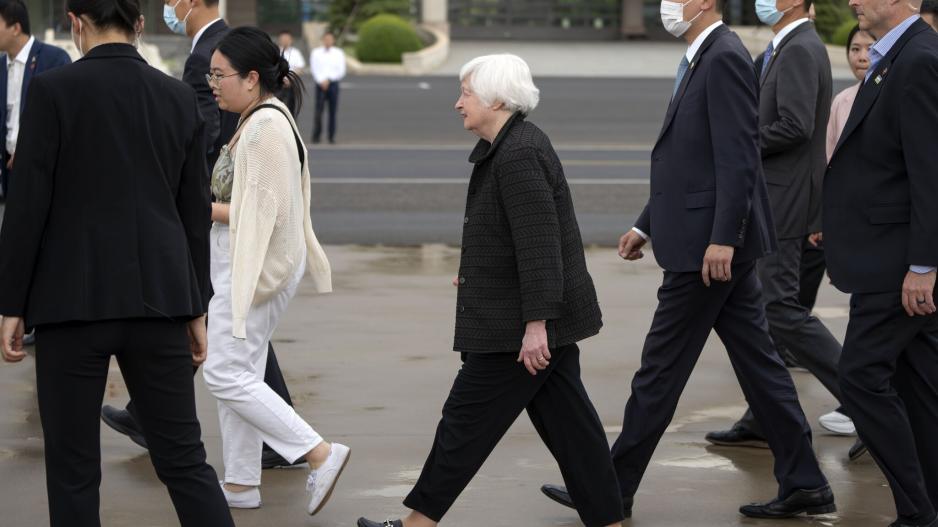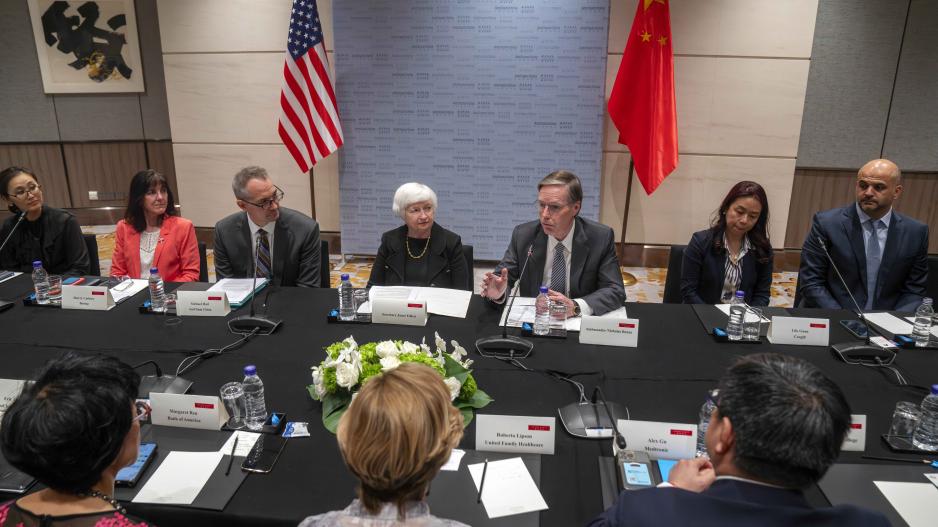Efforts to Ease Tensions: Yellen's Key Meetings in China
Advancing Cooperation Amidst Differences
The relationship between the United States and China has now reached a more stable and solid foundation, according to a statement made today by Janet Yellen, the Treasury Secretary of the United States. Yellen, who recently completed a four-day official visit to Beijing aimed at easing tensions between the two largest global economic powers, expressed optimism about the outcome.
During her visit, Yellen held meetings with senior officials from the Chinese government, including Prime Minister Li Qiang. Despite acknowledging significant differences between the two sides, Yellen consistently advocated for increased exchanges and cooperation.
Reflecting on the bilateral discussions that spanned approximately ten hours over two days, Yellen emphasized that these meetings marked a step forward in establishing a stronger basis for U.S.-China relations. She shared these thoughts during a press conference held at the U.S. embassy in Beijing before departing from China.
Yellen's visit, her first since assuming office in 2021, followed a similar trip made by U.S. Secretary of State Antony Blinken a few weeks earlier. These visits align with the Biden administration's efforts to stabilize the strained relations between the two nations.
In her assessment of the situation, Yellen stressed the responsibility of both countries to manage their relationship in a responsible manner. She highlighted the importance of finding common ground and working together to promote global prosperity. High-level contacts were deemed essential in achieving these objectives.
While no significant progress or agreements were announced during the visit, the official Chinese news agency Xinhua noted that the meeting between Yellen and Chinese Prime Minister He Lifeng resulted in an agreement to enhance communication and cooperation in addressing global challenges.
Yellen acknowledged the existence of significant disagreements between the United States and China. However, she emphasized that the discussions held in Beijing were characterized by frankness, substantive dialogue, and productive exchanges.
One area of recent contention has been the issue of microchips, with the United States imposing restrictions on the supply of American technology to Chinese companies. China, seeking autonomy in this sector, has accused these measures of hindering its own development and maintaining American technological dominance.
Yellen affirmed that the United States would continue implementing targeted actions to safeguard its national security. Simultaneously, she clarified that these actions were driven by concerns regarding national security rather than an intention to gain economic advantages.

The United States has expressed serious concerns about Beijing's unfair trade practices and obstacles faced by foreign companies entering the Chinese market, along with issues related to intellectual property protection. Ms. Glen, the US Secretary of the Treasury, highlighted her concerns about coercive measures targeting American companies, particularly investigations into auditing firms in China.
While Ms. Glen attempted to maintain an optimistic tone, Yun Sun, Director of the Stimson Center's China Program, noted that leaders Joe Biden and Xi Jinping would likely prefer tangible progress and significant outcomes. However, she emphasized that the level of communication and consultations between the two countries had not been seen in years.
President Biden recently stated his conviction that he will soon meet with his Chinese counterpart, with their next meeting scheduled for the end of the year. Ms. Glen advocated for a trip focused on fostering healthy competition rather than a law-of-the-jungle approach, acknowledging that such competition is sustainable only if it benefits both sides.
Chinese leaders exhibited a more enthusiastic attitude towards Ms. Glen, the US Secretary of the Treasury, compared to Mr. Blinken, the head of American diplomacy, as highlighted by Wu Xinbo, Director of the Center for American Studies at Fudan University. He explained that Ms. Glen is considered a professional by the Chinese, and her approach to economic and trade relations between China and the US is comparatively rational. She firmly opposes the idea of decoupling the two economies, labeling it as a disastrous development.
However, caution is advised regarding optimism, according to Taylor Fravel from MIT. He believes that a single visit or conversation cannot solely achieve the goal of stabilizing the relationship. Nevertheless, such interactions may demonstrate a willingness to continue bilateral economic cooperation despite political frictions and competitive actions aimed at limiting China's access to certain technologies, such as semiconductors.






